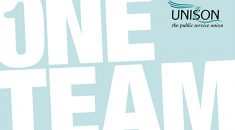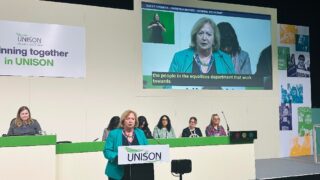Key health screening programmes in Northern Ireland could be at risk because of cuts to the Public Health Agency budget, UNISON has warned legislators in Stormont.
The union has written to all MLAs to raise concerns about the proposed £2.8m cut to the agency’s 2015/16 budget, which will put cancer and diabetes screening programmes at risk.
“On the day when the agency launches its Be Cancer Aware campaign, and a University of Ulster research report highlights that 61% of adults are overweight or obese, threats to funding for prevention make no sense,” says UNISON health agencies steward Kevin Briggs.
“The agency provides eight screening programmes, including breast and bowel cancer, newborn bloodspot and diabetic retinopathy.
“These screening programmes save lives and UNISON believes that some may go if the cut is imposed at this level.
The Public Health Agency plays a key role in health protection and health improvement, which will also be affected, says the union.
Its research and development unit supports four times more research funding than it costs, enabling people in Northern Ireland to take part in ground-breaking clinical trials and treatments for people with a variety of conditions.
In recent years, the agency has responded to outbreaks of pseudomonas, e-coli and pandemic flu, and is leading the public health response to Ebola.
UNISON adds that communities throughout Northern Ireland have benefited from initiatives supporting mental health and suicide prevention, healthy eating, becoming more active, infant mental health and positive parenting.
Regional organiser Fidelma Carolan said: “We are not asking that the Public Health Agency is exempt from budget reductions, only that the proposed percentage is reduced from 15% to 5%.
“This will ensure core functions can be maintained and ultimately protect the health and wellbeing of the population of Northern Ireland.
“The 15% demand will have a disproportionate impact on what the agency does and lives may be at risk.”





